Belinda Read online
Page 28
But she kept coming towards me.
“Jeremy,” she whispered. “Jeremy, please!”
I saw my hand go out, heard it hit the side of her face, saw her swing towards the doorframe.
“Damn you, damn you, damn you!” I slapped her again. She was screaming. She almost fell, and I grabbed her arm with my left hand, hit her again with my right. “How could you lie to me like that, how could you! How could you play a trick like that on me, how could you!” Miss Annie’s voice came from the stairwell, “Mr. Walker!”
Belinda tried to pull away. The back of her head hit the wallpaper in the hallway. She turned around as if she were trying to go through the wall itself.
“Look at me!” I was screaming. “Answer me!” She turned and kicked at me with her bare foot. “Let me go,” she sobbed.
“Liar, liar. To do that to me. I would have done anything for you, gone to the ends of the earth for you, all I asked you was to tell me the truth!”
I had slapped her again. She was going down on her knees, and Miss Annie had a hold of my right arm.
“Mr. Walker, stop it.” This tiny bit of a woman in a white bathrobe trying to hold onto my fist. “Let go of me!”
“Mr. Walker, you’ll kill her. Mr. Walker, she’s just a child!”
I turned and doubled my fist and slammed it into the doorframe. I slammed it into the plaster. Saw the plaster give under the wallpaper. A great gaping hole broke in the pattern of leaves and roses. Stench of rottenness. Of rain and rats and rottenness.
Miss Annie was saying, “Come on, dear, come on,” to her. I could hear their footsteps. Belinda gasping.
I hit the doorframe again. Saw the smear of blood on the lacquer. Then, thank God, I heard the lock on her door turn.
[30]
FIVE days after she left, the notebook came in the mail.
I had tried to talk to her after the fight. But it had been ghastly, going into that room, trying to tell her I was sorry, so sorry, and the words sticking in my throat. There had been bruises on her face, on her shoulders, and her tender naked arms. I had said: “We’ll work it out somehow, we’ll talk about it. This can not be the end of it, not for us.” And from her nothing but the silence. The same old silence and her eyes like the eyes of a dead person staring past me, at the leaves of the trees against the glass.
the middle of the night she had left. had stayed awake as long as I could, pacing back and forth, with only Miss Annie now and then coming to say, yes, she was all right. The truth was, I’d been afraid that if she started to leave, I wouldn’t be able to stop her, that I would watch her go, unable to bring myself to say or do anything at all.
But I had stayed awake as long as I could.
I did not even remember lying down on the bed, only that when I awoke at three, it was no nightmare that woke me. And she was gone. The closets were empty, all of her things gone. The rain was coming. in the open windows onto the floor of her room.
Through the entire house I searched for some note from her, but there was nothing. And only later that morning did I find the tape of Final Score on the marble top bedside table in my room.
She must have come in while I was sleeping and put it right beside me. If only I had awakened then.
THEN five days later, after I had called Bonnie and called that damned son of a bitch Moreschi and called Alex and called George Gallagher in New York, the notebook came in the mail.
I was sitting on the settee in Mother’s room and I was thinking how hideously old everything was, how beyond restoration. The rain was blowing right into the room through the French doors to the porch. Bonnie’s private number was now disconnected. What the hell did I want of him? Moreschi had said, she was on her own, she’d always been. No, no detectives anymore. George had promised to call me if he heard from her. Alex kept begging me to tell him where I was and I wouldn’t. Didn’t want anyone to come now. Just wanted to sit here in the ruined room in the ruined house and listen to the rain fall.
Cold the breeze already in late September. And why had she left me Final Score? What had been the meaning? How had she looked at me when she laid the tape on the bedside table? Had there been hatred in her eyes then, too?
Three dozen times I’d watched the tape. I knew every movement, every word of dialogue, every angle of her face.
That and the rain falling were my only interests. And now and then the Scotch in the glass.
Then Miss Annie came up the stairs with a fiat brown package. A messenger service had brought it. She had signed the receipt. There was no return address on it, no name to indicate the sender. But I knew her writing instantly from those old notes: “Came, went—Belinda.”
And I had torn it open to find the notebook with its fifty ruled pages full of that small, careful writing. And on the front label the words that struck the deepest pain:
FOR JEREMY, THE WHOLE STORY, WITH LOVE.
AND INTRODUCING BELINDA
Well, first off this is no sob story about Mother. I mean, about growing up with her drinking and her pill taking and her general craziness and all the things she did or did not do. I am not ready to lie down on a shrink’s couch and say this was all bad.
The truth was, I had a ball. I traveled all over Europe with Mom, I was doing bits in her pictures even before I can remember. And I’m glad that it was the Dorchester in London or the Bristol in Vienna, or the Grande Bretagne in Athens rather than a tract home in Orinda, California. I can’t say that I am not.
And I’m glad it wasn’t Hockaday private school or Hollywood High instead of the college kids that traveled with us too. I loved those kids, and they came from all over the world and they had terrific energy. And they gave me more than any school ever could.
I mean, it was no picnic cleaning up vomit off the floor or calling a hotel doctor at four in the morning or getting in between Mom and Leonardo Gallo when he was pouring whiskey down her throat trying to make her go from crazy drunk to passed out. It was no fun dealing with her moods and her rages. But Mom, for all her problems, is a generous person. She gave me everything I ever asked for, everything I could ever use.
But to understand what happened here, Jeremy, you have to understand something about Mom. For Mom there really isn’t anybody else but Mom.
She tried to kill herself at least five times that I know of, and two of those times, if she had succeeded, she would have killed me, too. The first time was when she turned on the gas in the guest house on the ranch in Texas. I was playing on the floor. She came in and sort of passed out on the bed.
The second time was when she tried to drive us over a cliff on Saint Esprit.
The first time I didn’t react much. I was too little. My uncle Daryl came, turned off the stove, and got us out of there. I understood what happened because I heard what everybody said afterwards, about her being depressed and about her having to be watched. And several times Uncle Daryl said: “And Belinda, Belinda was in there, too.” I guess I filed it away somewhere to understand later.
But on Saint Esprit I got furious after it happened. I mean, Mother would have driven us both over the cliff.
But Mother never saw that aspect of it. She never said one word about me being in danger. She even asked me later, “Why did you stop me? Why did you grab the wheel?”
When you see that side of Mother, you see craziness. I have seen it many times.
When she broke up with Leonardo Gallo, I had been in school, in Switzerland, for maybe a couple of weeks. They called from the hospital. Mom had taken an overdose but she was OK, and she wanted me to come. It was four o’clock in the morning and she had them wake me up and take me to the airport. And when I got to Rome, she was gone. She had checked out that morning and gone on to Florence because her old Texas friend Trish had come to get her. I didn’t even know where they had gone for two days.
I was going crazy, all alone in the flat in Rome, with Gallo calling every hour and the reporters banging on the door.
But most of all I
was embarrassed. I was embarrassed when the school called and the neighbors came over. I was embarrassed that I was there all alone.
When Mom finally called, all she kept saying was, “Belinda, it was important that I not see Leonardo, you know the way I feel.”
I never forgot that, being embarrassed and bullshitting all those grownups, trying to make them think somebody was taking care of me.
And I remember Mother said: “Belinda, I feel so much better. Trish and Jill are taking care of me. Everything’s fine, don’t you see?”
Well, I could see all right. And even by that age, really, I knew not to argue with Mom. Arguing only confused her. It hurt her. If you pushed Mom hard enough on any subject, she would start crying uncontrollably and talking about her own mother’s death, how when she was seven, she had buried her mother, and she should have died, too, right then. Her mother had died of an alcoholic seizure, alone in a big mansion in Highland Park. Once Mom started on that, there was no arguing or talking or anything. You just had to hold her hand and wait it out.
Yet there were times when I lost my temper. I screamed at Mom about things. But she would just stare at me with her large brown eyes, as if I were the crazy one. And afterwards, well, I’d feel stupid for forgetting that Mom couldn’t ever really see what was going on herself.
She wouldn’t hear of me going back to school after that. So my one and only two-week try at school was over.
But from that day on, I made sure I always had money. I had a couple of grand in traveler’s checks always in my purse. I’d hide cash in places, too. I never wanted to be broke and alone again like that.
When I finally ran away last year, I had maybe six grand with me. And I still have some of that money, as well as money my Dad gave me later and money you gave me, too. I hoard money. In the night I go to look and see if it’s there. Clothes, jewelry, the things money can buy, they don’t mean that much to me, I think you know that. But I have to have the money itself just in case.
But I don’t want to jump ahead. And I want to say again that I wasn’t miserable as a kid. I guess there was just too much excitement, too many good things happened, and during the early years Mom was always a very physically affectionate person, very warm. Later her warmth came to seem rather impersonal to me and even grasping. But not when I was little. Guess I needed it too much.
Even when we settled on Saint Esprit, things were good. Lots of people came to visit—Blair Sackwell of Midnight Mink, who is an absolutely wonderful friend of mine, and Gallo, and Flambeaux, Mom’s first real lover, and actors and actresses from all over Europe.
And I was always taking off on shopping trips to Athens and Rome and Paris with either Trish or Jill. Mom had the stables especially built for the horses she bought me. She had a riding instructor come to live there, and I had this very good English girl as a teacher and companion, the one who really got me into reading. And I went on ski trips and tours to Egypt and Israel and a couple of students from Southern Methodist came over to tutor for a while. We had a ball on Saint Esprit. Pretty good for a prison, I have to admit.
When Trish found out I was going to bed with this Arab kid in Paris, this Saudi prince, I guess he was, the first affair I ever really had, she didn’t get angry or upset. She just took me to a doctor to get the pill and told me to be really careful, and our talk about sex after that was just pure Texas and pure Trish.
“You know, be careful and all, I mean not just about getting pregnant, but, you know, sort of, you should like the boy and all (giggle, giggle). You know, just don’t (giggle) hop right in the sack.”
Then she told me all about when she and Mom were thirteen and they went to bed with these boys from Texas A&M, and they didn’t have any birth control, so afterwards they ran to the drugstore and got hot Seven-Ups and shook them and then squirted them inside to wash everything away. What a mess! We almost died laughing. “But, honey, don’t get pregnant,” she said.
I think you have to know Texas women to understand this, I mean girls who grew up like my Mom and Trish and Jill. Somewhere way back in the family there had been hard-shell Bible-reading Baptists, but by the time of Moro’s parents the code was a very simple One of work hard, make money, don’t get caught going too far with the boyfriend, and keep everything looking nice. I mean the Dallasires I met were never weighed down by any tradition. They were materialistic and practical, and how things looked—well, you cannot overemphasize the importance of this. It is Texas religion.
I mean Trish and Jill and Mom were all wild in high school, as they called it, but they dressed beautifully and they talked nice and they had loads of money and they drank only in private so that was all fine. Even Mona’s more had never taken a drink outside her own home. She died in a silk negligee and silk slippers. Mom was always saying things like, “She was not a flousy, you understand, she never went to barrooms, not my mother, none of that kind of thing.” Appearances mattered, not sin.
And this, you see, is the freedom that I inherited, the way that I grew up, too. And Mom was a superstar before I was born. So the ordinary rules never applied to her. And I did not learn guilt about my body at all.
But to get back to the record, on Saint Esprit Trish and Jill took care of everything, but they could put the beer away as well as Mother, and sometimes it seemed I never went to sleep without hearing those drunken Texas voices and the laughing and the carrying-on.
But underneath it all there was a sense of Mother deteriorating. Of Mother getting further and further away from what Mother really wanted, which was to be a big star again.
The advertisements she did made her feel better. And then there was that fantastic Eric Arlington poster that sold all over the world. That was something, OK, but there was a lot of Trish and Jill catering to Mom, to her vanity and her fear. Of them sneering at the new movies they watched that didn’t have Mom in them, of proving to themselves over and over by watching this or that new actress that nobody was as good as Mom. I mean, they acted like something big was going on if they watched a movie by a director that Mom had once turned down. I mean, nothing was happening but talk and drinking and laughing, that’s all.
And though they did watch Mom and make her eat and go to bed early, they never told Mom the truth about a single thing. They were allies, that’s what they were right up till the end. And Mom needed something more than that if she was ever to make her comeback, as you’ll see.
Sometimes I got unnerved by it, the sense of Mom sinking, and I had to do something. I bought a Vespa on Rhodes when I was twelve and brought it home on the boat with me. And I rode all over the island at fifty-five miles an hour on that little thing, thinking mad thoughts about the craziness of it, that we were all trapped on Saint Esprit like in a French play.
When Blair Sackwell came to visit, he was really worried about me and he jumped on the Vespa with me, complete with his Midnight Mink lined coat, and we drove off together to the ruins of the temple of Athena, which is all overgrown with grass now and neglected, and Blair tried to comfort me and tell me I was just young and Saint Esprit couldn’t last forever. Some day I’d get away. Blair was a real buddy, but I was getting very sick of Saint Esprit, feeling almost like running away.
Well, all this ended the day that Susan Jeremiah came. I know you know all about her now, because you told me you did in Carmel. And I’m sure you noticed the posters of her in my room.
Well, Susan and her film crew made an unauthorized landing on Saint Esprit, which hundreds of people have done. But when Susan said she was from Texas, Mom said, Come right in.
Susan wasn’t like any other woman I’d ever met before, and understand I’d known actresses from all over the place since I was born.
Susan took my breath away. When I first saw her, I figured the cowboy boots and the hat had to be an affectation. After all, we came from Dallas. I was born in Dallas. We went back to Uncle Daryl’s ranch all the time. And we never dressed like that.
But it became obvious within twe
nty-four hours that these were Susan’s clothes. Susan went through sand and surf and high grass and up mountain paths in her boots. She wore jeans and shirts only. She didn’t even have a dress.
When we finally went to Cannes months later, I kept thinking now Susan has to get in female drag. But it didn’t happen. Susan wore a rodeo outfit, I mean strictly “Rhinestone Cowboy,” with the satin shirt and pants and piping all over, and she was a smash. Susan is not what you call conventionally beautiful. But she is very good looking in her own way.
I mean, she is tall and narrow, and she has something of what I would call a Texas country look to her, with her cheekbones close together and her eyes deep-set. Her hair is short, but it’s curly and full and it looks like somebody worked on it getting it nicely shaped, but nobody ever did.
Susan leaves other people breathless, too. And she has a way with the press which I found sensational. She looks right at the reporters and says, “I know what you’re driving at,” like she is on their side and then she sticks up for herself.
OK. That was the looks and the manner. But what was inside was even more surprising. Susan believed she could do anything. Nothing could stop Susan. There was maybe a second and a half between her deciding that she wanted something and reaching out her hand to get it for herself.
As soon as she got to Saint Esprit she just sat down opposite Mom on the terrace and she started describing her movie to Mom and what she needed to finish it—and was Mom interested, and did Mom want to help a woman director from Texas and all that?
She was going to make a big picture in Brazil afterwards, and she was going to make a picture after that somewhere in Appalachia, and all these films she was writing and directing herself.
She had plenty of money from her daddy in Texas, but she was over budget. Her dad had sunk eight hundred thou into the flick and he wouldn’t give her a nickel more.
Well, Mother, as you probably know if you read the magazines, gave Susan a blank check. Mother took on Final Score for a percentage, and Mother got the film invited to Cannes.

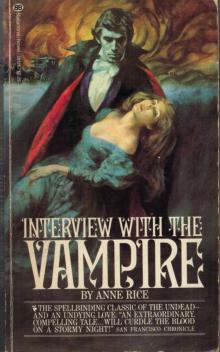 Interview with the Vampire
Interview with the Vampire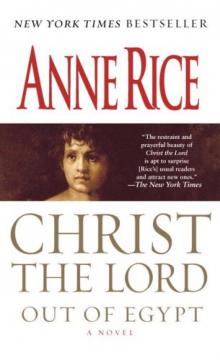 Christ the Lord: Out of Egypt
Christ the Lord: Out of Egypt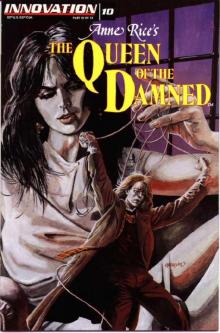 The Queen Of The Damned
The Queen Of The Damned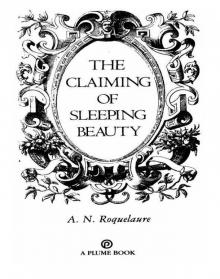 The Claiming of Sleeping Beauty
The Claiming of Sleeping Beauty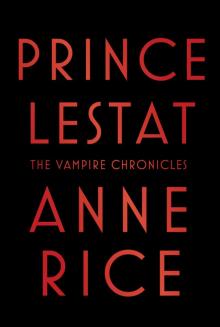 Prince Lestat
Prince Lestat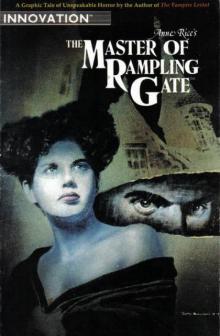 The Master of Rampling Gate
The Master of Rampling Gate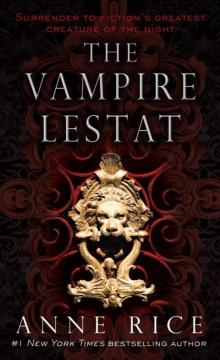 The Vampire Lestat
The Vampire Lestat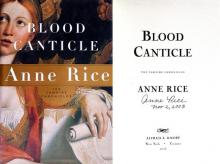 Blood Canticle
Blood Canticle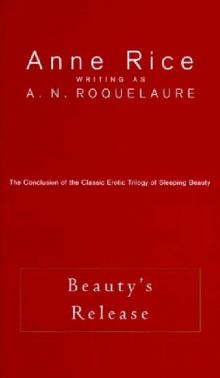 Beauty's Release
Beauty's Release Pandora
Pandora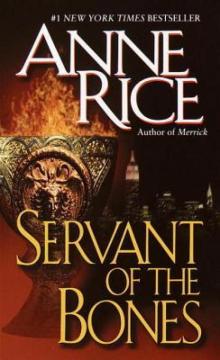 Servant of the Bones
Servant of the Bones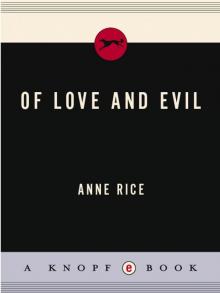 Of Love and Evil
Of Love and Evil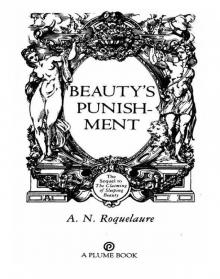 Beauty's Punishment
Beauty's Punishment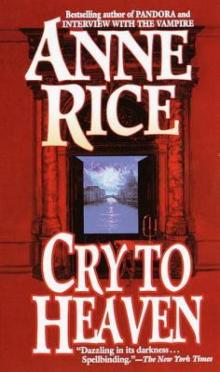 Cry to Heaven
Cry to Heaven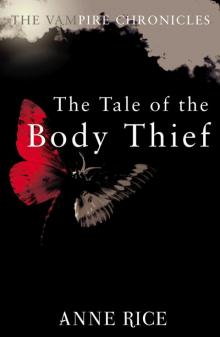 The Tale of the Body Thief
The Tale of the Body Thief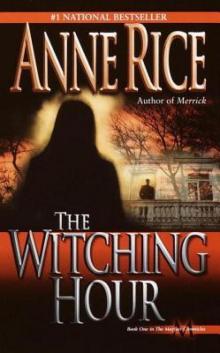 The Witching Hour
The Witching Hour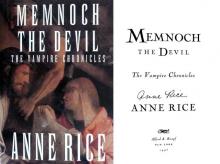 Memnoch the Devil
Memnoch the Devil Blackwood Farm
Blackwood Farm Beauty's Kingdom
Beauty's Kingdom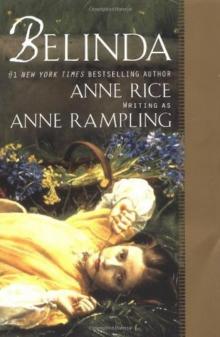 Belinda
Belinda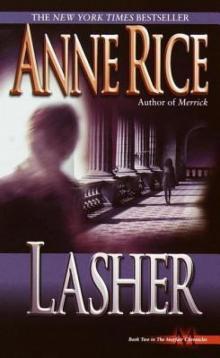 Lasher
Lasher Vittorio, the Vampire
Vittorio, the Vampire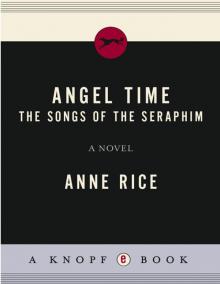 Angel Time
Angel Time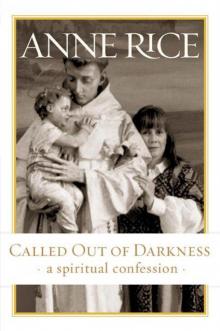 Called Out of Darkness: A Spiritual Confession
Called Out of Darkness: A Spiritual Confession Blood And Gold
Blood And Gold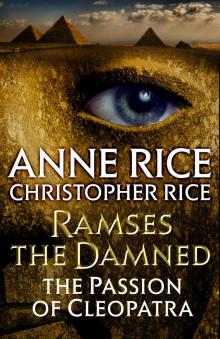 The Passion of Cleopatra
The Passion of Cleopatra Taltos
Taltos Exit to Eden
Exit to Eden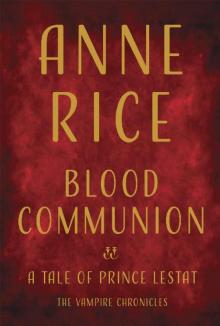 Blood Communion (The Vampire Chronicles #13)
Blood Communion (The Vampire Chronicles #13) The Wolf Gift
The Wolf Gift The Wolves of Midwinter
The Wolves of Midwinter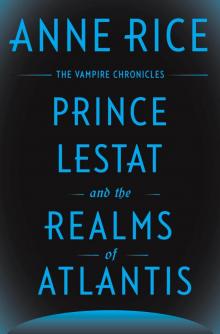 Prince Lestat and the Realms of Atlantis
Prince Lestat and the Realms of Atlantis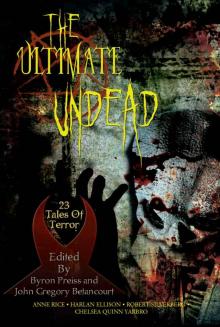 The Ultimate Undead
The Ultimate Undead The Vampire Lestat tvc-2
The Vampire Lestat tvc-2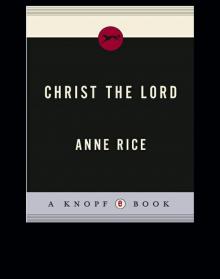 The Road to Cana
The Road to Cana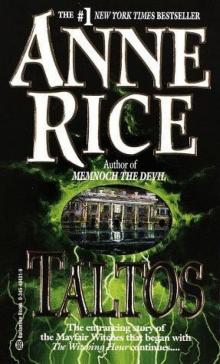 Taltos lotmw-3
Taltos lotmw-3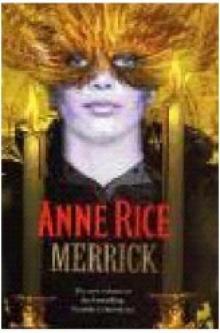 Merrick tvc-7
Merrick tvc-7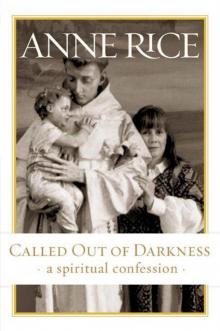 Called Out of Darkness
Called Out of Darkness Pandora - New Vampires 01
Pandora - New Vampires 01 Bllod and Gold
Bllod and Gold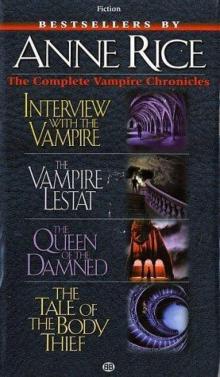 The Queen Of the Damned: Vampire Chronicles
The Queen Of the Damned: Vampire Chronicles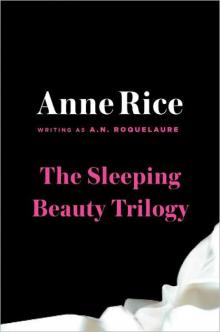 The Sleeping Beauty Trilogy
The Sleeping Beauty Trilogy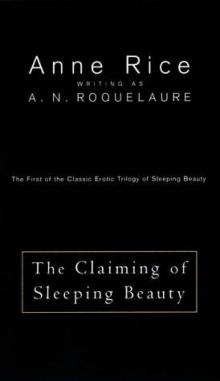 The Claiming of Sleeping Beauty b-1
The Claiming of Sleeping Beauty b-1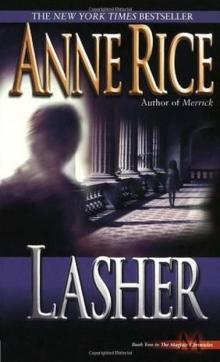 Lasher lotmw-2
Lasher lotmw-2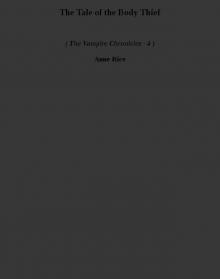 The Tale of the Body Thief tvc-4
The Tale of the Body Thief tvc-4 The Vampire Chronicles Collection
The Vampire Chronicles Collection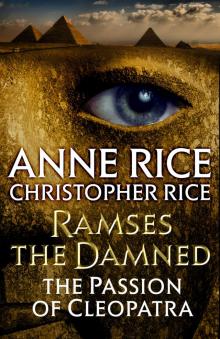 Ramses the Damned
Ramses the Damned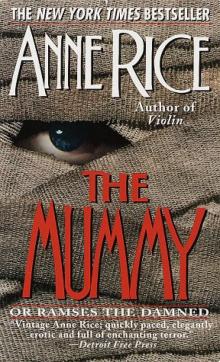 The Mummy - or Ramses the Damned
The Mummy - or Ramses the Damned Vittorio, The Vampire - New Vampires 02
Vittorio, The Vampire - New Vampires 02 The Vampire Armand tvc-6
The Vampire Armand tvc-6 Queen of the Damned tvc-3
Queen of the Damned tvc-3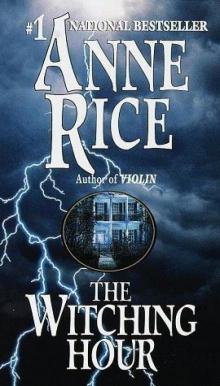 The witching hour lotmw-1
The witching hour lotmw-1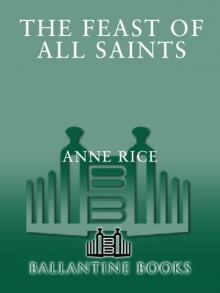 Feast of All Saints
Feast of All Saints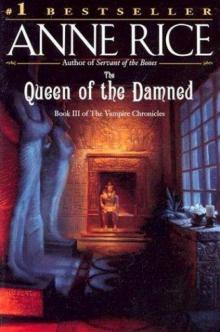 Queen of the Damned
Queen of the Damned The Wolves of Midwinter twgc-2
The Wolves of Midwinter twgc-2 The Mummy
The Mummy Blood and Gold tvc-8
Blood and Gold tvc-8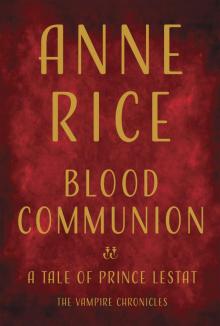 Blood Communion
Blood Communion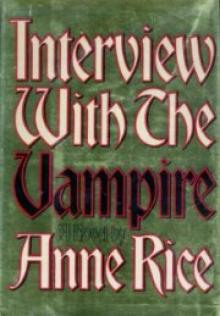 Interview with the Vampire tvc-1
Interview with the Vampire tvc-1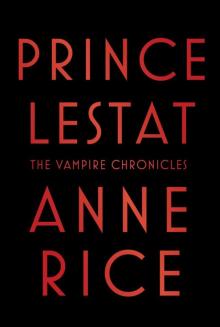 Prince Lestat: The Vampire Chronicles
Prince Lestat: The Vampire Chronicles